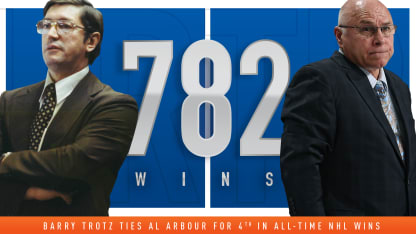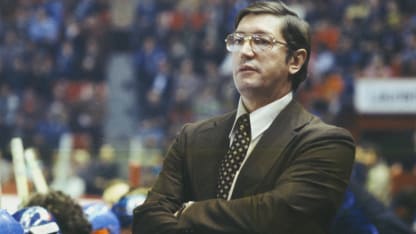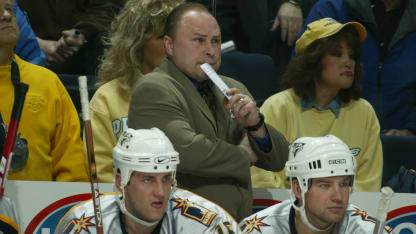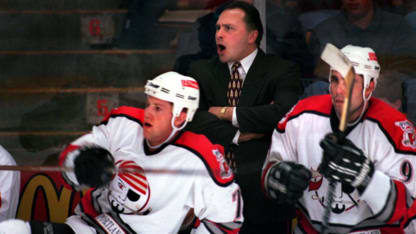Trotz's journey to one of the game's most winningest coaches began long before he debuted with the Nashville Predators in their inaugural season in 1998-99.
The Dauphin, MB, native didn't initially set out to be behind the bench and sort of fell into coaching after his playing career didn't pan out.
At 20, Trotz was invited to the Washington Capitals training camp. He approached David Poile, the future Nashville GM who would give Trotz his first NHL coaching job, and Jack Button to introduce himself, but the conversation took an unexpected turn. Button told Trotz he'd been brought in to be a minor league leader or future coach and that he didn't have a chance to make the Caps.
"That wasn't what I wanted to hear, but I'm glad he said it," Trotz said.
Button later hired Trotz as an area scout for the Capitals while Trotz was working as an assistant at the University of Manitoba. Trotz credits Wayne Fleming, the head coach at the University of Manitoba, with helping him make the transition into the coaching realm.
"He was really a good teacher. I give a lot of credit to him," Trotz said of Fleming. "He sort of helped me [catch] the coaching bug when I wasn't able to play anymore. He was the one who got me on the path."
Trotz holds Fleming and other Canadian university coaches in high regard. He remembers how Clare Drake, the winningest coach in Canada's collegiate circuit, made time for him and shared his philosophies on coaching. It's easy to draw a parallel from Trotz's biggest mentors and the effect they had on him, to the approachable nature he has come to be known for. Trotz even made time to teach media members in Nashville some intricacies of the game - almost unheard-of in the NHL.






















